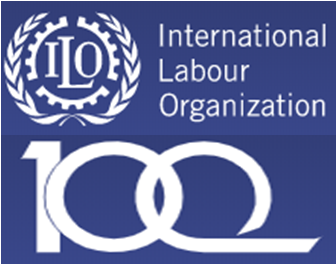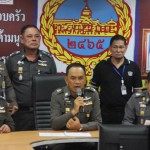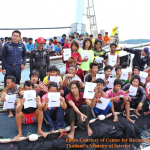
Charting a future for decent work in supply chains in Thailand: experiences from the automotive and food sectors
As a side event for the upcoming Responsible Business and Human Rights Forum, the ILO, in collaboration with Employers’ Confederation of Thailand and the Sustainability and Entrepreneurship Center of Sasin School of Management, is co-hosting a discussion in the context of work of the “Responsible Supply Chains in Asia” (RSCA) programme, a joint partnership between the EU, ILO and OECD.
Note: to attend this event you must first register to the Responsible Business and Human Rights Forum by following this link: rbhrforum.com
Operating in selected industries in six Asian countries, the Responsible Supply Chains in Asia programme aims to advance sustainable and inclusive growth by encouraging businesses to adopt policies and practices in the areas of human and labour rights and environmental protection standards in line with international principles and guidelines, such as the ILO’s MNE Declaration and the OECD’s MNE Guidelines. In Thailand, the project focuses on the agriculture and vehicle parts sectors, both of which account for a high number of jobs in Thailand and the region and play an important role in the Thai economy and in trade linkages between Thailand and the European Union.
Session Focus
The session will begin with an overview of smart policies to promote responsible practices in Thailand, followed by an introduction of the International principles and guideline on responsible business conduct. Then, leading stakeholders from the vehicle parts and agricultural sector will exchange perspectives from their sectors. Following this, a Q and A will debate challenges related to international mechanisms and socially responsible good practices.
Key Questions:
1. What are the characteristics of auto parts and agricultural supply chains in Thailand from the perspective of labour?
2. What are good practices and challenges from companies in the targeted sectors and what tangible benefits result?
3. What are the main challenges to be addressed?
4. What is the result of the past smart policies and what’s the government plan? Other relevant actors to be added to the dialogue?
5. Identify joint actions among relevant actors to continue working in the context of the project
Format
Each speaker will offer a brief, five-minute talk supported by slides. After the programmed six speakers (three from each sector) have spoken we will open up the floor to what we anticipate will be an uninhibited exchange that will inform everyone’s understanding of the nuances guiding supply chain decisions.
Agenda
12.30 – 12.45: Lunch provided in the public foyer
12.45 – 12.50 : Introduction to the session and speakers by Mr. Graeme Buckley, Director, ILO Country Office for Thailand, Cambodia and Lao PDR
12.50 – 13.00: SMART policies to promote responsible practices by a representative from the Ministry of Labour
13.00 – 13.10 International principles and guideline on responsible business conduct by Shivani Kannabhiran, Policy Analyst of Responsible Business Conduct, OECD
13.10 – 13.25: Agricultural supply chains
- Presentation on preliminary findings of the desk review by Ms. Sarinee Achavanuntakul
- Good practices and challenges by a representative of Thai Broiler Processing Exporters Association and an agricultural worker/trade union
13.25 – 13.40: Good practices and challenges by representatives from an automotive company and a representative from an automotive trade union.
13.36 – 14.00 Q&A with speakers
Contact Details:
Chayanich Thamparipattra +66 94 772 3322, thamparipattra@ilo.org
| Type: | Event |
|---|---|
| When: | 13 June 2019 |
| Where: | United Nations ESCAP, Bangkok, Thailand |
| Contact(s): | Ms. Chayanich Thamparipattra, National Project Coordinator. thamparipattra@ilo.org |




